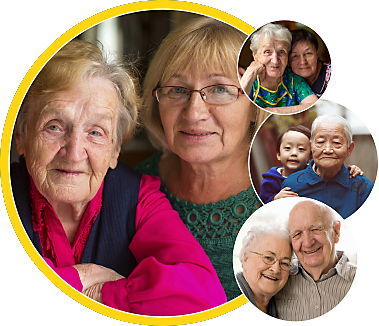
Older Australians are generally fit and well and most are living in their own home. Over time they may need more support and there are many different services that can help them remain independent. However, some because of cognitive issues such as dementia or specific conditions like breathlessness may need more care. Families are often involved in providing this support and care, directly or indirectly.
As an older person ages, they will become frailer and underlying conditions may worsen and they will enter the last phase of their life. Understanding how things will change as the older person moves towards death and by talking about what type of care will be needed is often helpful for both the person and the family.
These pages provide information on palliative care and end of life care and on services and resources that can help the person and their families. Having reliable information is important when making decisions about care. To ensure access to trustworthy information we have brought some of the content in these pages across from the CareSearch Community Centre. You will find that some of the information can be useful at any age while other sections are specific to the older person and their care needs.